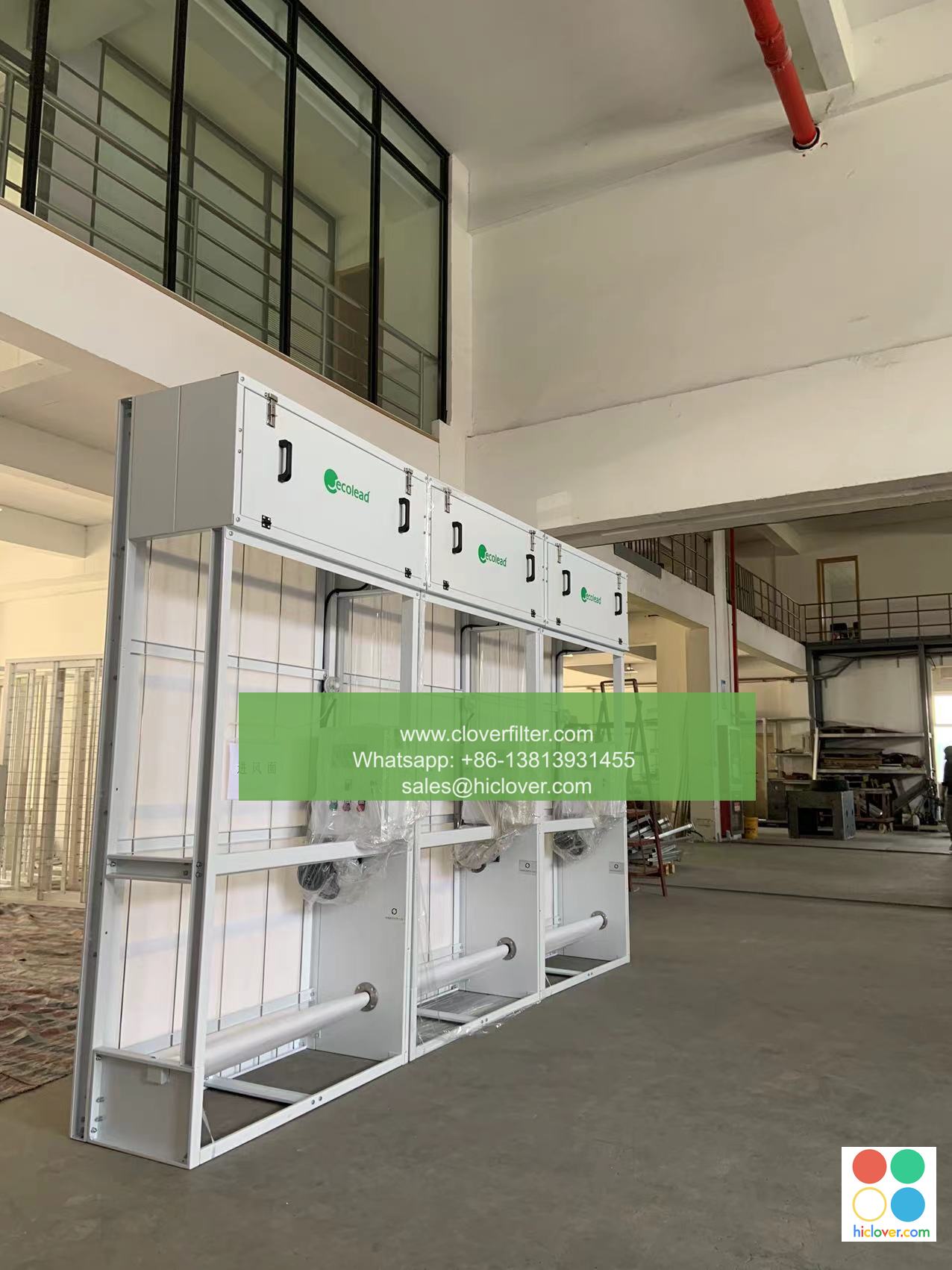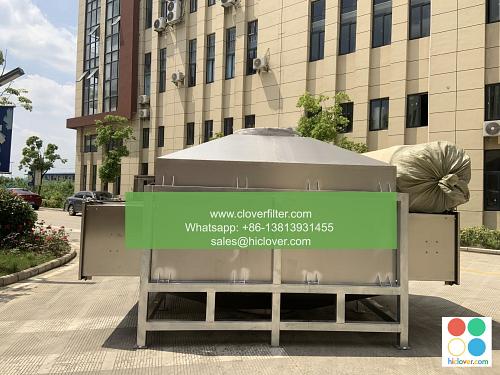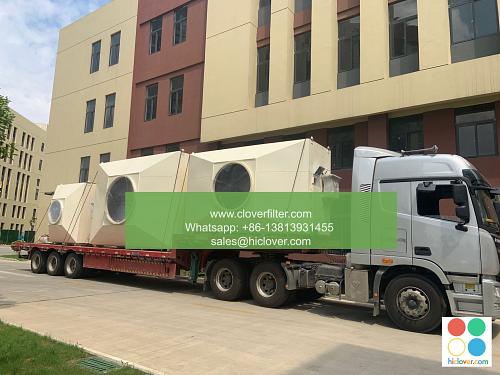Automatic Roll Air Filters: The Unsung Heroes of St. John’s Hospital’s Air System

St. John’s Hospital, a renowned medical institution, has always prioritized the health and well-being of its patients, visitors, and staff. One crucial aspect of maintaining a healthy environment is the air quality within the hospital. To ensure the air remains clean and pure, the hospital relies on a robust air filtration system, with automatic roll air filters playing a vital role. These unsung heroes work tirelessly behind the scenes to remove airborne contaminants, allergens, and pathogens, creating a safer and more comfortable space for everyone.
Automatic roll air filters are designed to capture a wide range of airborne particles, from dust and pollen to bacteria and viruses. These filters are typically installed in the hospital’s air handling units (AHUs) and work by drawing in air, which then passes through a rolled filter media. The filter media is coated with a specialized adhesive that traps particles as small as 0.3 microns, preventing them from recirculating into the air. This process ensures that the air distributed throughout the hospital is clean, fresh, and free from harmful contaminants.
The benefits of automatic roll air filters in St. John’s Hospital are numerous. Firstly, they provide an exceptional level of air quality, which is critical in a healthcare setting where patients may have compromised immune systems. By removing airborne pathogens, the filters help prevent the spread of infections and diseases, reducing the risk of hospital-acquired illnesses. Additionally, the filters alleviate allergy and asthma symptoms, creating a more comfortable environment for patients and staff. The filters also help maintain the hospital’s equipment and furnishings by reducing dust and dirt accumulation, which can damage sensitive medical equipment and decor.
Another significant advantage of automatic roll air filters is their ability to operate continuously without manual intervention. The filters are designed to automatically roll out new media as the old media becomes saturated, ensuring uninterrupted air purification. This feature is particularly important in a hospital setting, where downtime or maintenance can have significant consequences. The automatic roll air filters also minimize labor costs associated with manual filter replacement, allowing hospital staff to focus on more critical tasks.
St. John’s Hospital has implemented a comprehensive maintenance program to ensure the optimal performance of its automatic roll air filters. The hospital’s maintenance team regularly inspects the filters, checking for signs of wear and tear, and replaces the filter media as needed. The team also monitors the air quality in real-time, using advanced sensors and monitoring systems to detect any changes in airborne particle levels. This proactive approach enables the hospital to address any issues promptly, maintaining the highest level of air quality and ensuring the continued health and well-being of its patients and staff.
In conclusion, automatic roll air filters play a vital role in maintaining the air quality at St. John’s Hospital. These unsung heroes work tirelessly to remove airborne contaminants, creating a safer and more comfortable environment for patients, visitors, and staff. With their ability to operate continuously, provide exceptional air quality, and minimize labor costs, automatic roll air filters are an essential component of the hospital’s air system. By prioritizing air quality and investing in cutting-edge filtration technology, St. John’s Hospital demonstrates its commitment to providing a healthy and supportive environment for everyone.
FAQs
- What are automatic roll air filters, and how do they work? Automatic roll air filters are designed to capture airborne particles, including dust, pollen, bacteria, and viruses. They work by drawing in air, which passes through a rolled filter media coated with a specialized adhesive that traps particles as small as 0.3 microns.
- What are the benefits of using automatic roll air filters in a hospital setting? The benefits include exceptional air quality, reduced risk of hospital-acquired illnesses, alleviated allergy and asthma symptoms, and minimal labor costs associated with manual filter replacement.
- How often should automatic roll air filters be replaced or maintained? The frequency of replacement or maintenance depends on the manufacturer’s recommendations and the hospital’s maintenance program. Typically, the filter media should be replaced every 1-3 months, depending on usage and air quality levels.
- Can automatic roll air filters be used in other settings beyond hospitals? Yes, automatic roll air filters can be used in various settings, including commercial buildings, schools, and residential homes, to improve indoor air quality and create a healthier environment.
- Are automatic roll air filters more expensive than traditional air filters? While the initial cost of automatic roll air filters may be higher, they offer long-term cost savings due to their ability to operate continuously, reduce labor costs, and minimize maintenance requirements.


